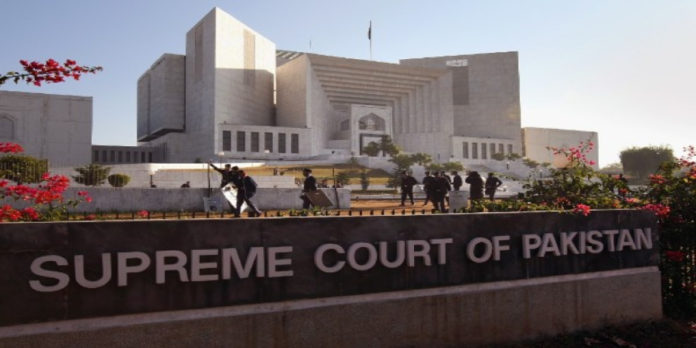ISLAMABAD: The Supreme Court while hearing suo motu notice on Wednesday against the burning of Karak temple, ordered to collect the damages money within a month from the accused who were involved in the temple attack.
A two-member bench headed by Chief Justice of Pakistan conducted the hearing.
Chief Justice remarked that the minority community can expand the place of worship as much as they want.
The CJ said that if the Hindu community wants to build a temple in the whole of Karak, they can build it.
The Hindu community reached an agreement with the locals and following that, the accused were granted bail.
During hearing Advocate General KP told that court that the renovation of the temple has cost more than Rs 34 million. The court ordered Chief Secretary KP to equally divide Rs34 million among the accused and collect money from them for the renovation of temple within a month so that all of the accused could realise what they have done.
To this the KP government raised objections to receiving money from the accused. Advocate General KP argued that the trial against the accused is underway and if later a person is found innocent after the trial, what will happen to the money received from him?
To this, the Chief Justice responded by saying that the Advocate General should be carefully speaking about the matter as this is a court order.
Hindu leader Ramesh Kumar told the court that the way to the temple has been blocked and people are saying we should talk to local religious scholars.
To this the Chief Justice remarked, “We will deal with local religious scholars if they come.”
One of the accused Rehmat Salam told the court that he is innocent and has nothing to do with those who damaged the temple. “Hundreds of innocent people have been caught in this case,” he said. He added that during the attack he was trying to stop the people who were damaging the temple.
Advocate General KP told that court that on December 22 the Hindu community bought two properties. “The Hindu community had assured the locals they will not build the temple on purchased properties.
“The clash took place when the Hindu community breached the agreement and started building a temple there,” he said.
Later, the court adjourned the hearing for a month.
